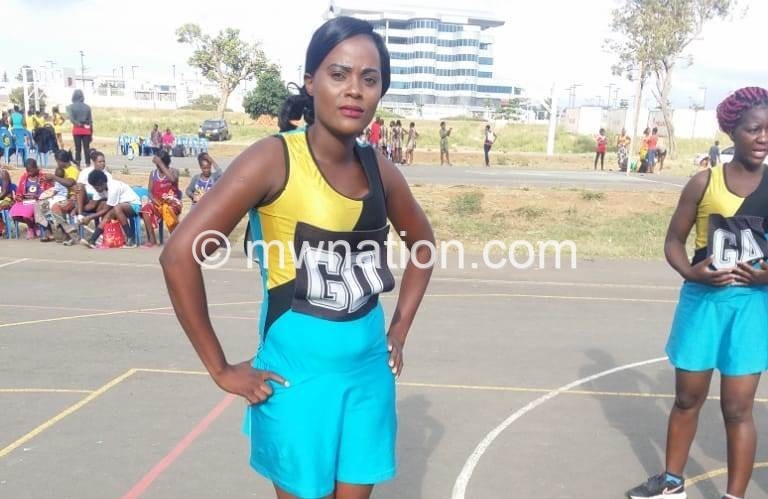
When I heard about the ruling I was shocked because I do not think the punishment reflects the crime I am purported to have committed. But I will not appeal because I do not think it will change anything. I have accepted it and life goes on. If anything, I will just be playing social netball, otherwise I am done with active netball.”
This was former Karonga Queens captain Abigail Mwalughali’s reaction to her 25-year ban by the Netball Association of Malawi (NAM) after she was found guilty of leading a skirmish which led to the assault of an umpire Lot Chiumia during a Presidential Cup regional finals match against Mzuzu Queens last year.

There was a touch of despair to her tone. At times I could hear her voice strain with emotion on the other end of the line as she struggled to accept the harsh reality that her netball career could be over.
It is all doom and gloom for the netballer.
But while any acts of violence and hooliganism should not be condoned in sport and that the Karonga Queens’ goal defender deserved to be punished for going out of her way, NAM should have exercised leniency, after all there have been similar cases before, but the punishments have not been as severe as this one.
In 2017, two national team players—Joana Kachilika, who is also Queens captain and Sindi Simtowe-Msowoya—produced a shocking moment of madness when they turned the Blantyre Youth Centre into a boxing ring and exchanged blows during a Rainbow Paints Blantyre and Districts Netball League (BDNL) match between their respective teams—Tigresses and Thunder Queens.
It was another version of the famous ‘Rumble in the Jungle’ between Muhammad Ali and George Foreman.
These were two senior national team players, but for their deplorable act, all they got were a five-month ban each, nothing close to 25 years.
That is not all. In 2008 or thereabouts, a netball umpire Joseph Mwamone was roughed up by players in Mzuzu and in that moment of chaos, he lost two teeth. As a result, two players were banned for six months each and not three, 10 or 15 years. Why then is Mwalughali’s case being treated differently?
So, while NAM through its general secretary Carol Bapu, argues that the lengthy ban was meted out because of the severity of the offence, the netball governing body should have exercised leniency, considering punishments that have been given before in more or less similar cases.
On his part, netball analyst Wesley Namasala said: “Punishments serve different purposes. It can be for deterrence, bringing in the fear factor. It can be for rehabilitation with the aim of changing the law breaker through correctional interventions or retribution which ideally, the harshness of punishment should be proportionate to the seriousness of the offence.
“Rehabilitation is a forward-looking purpose of punishment. That is, one looks to the future in deciding what to do in the present while the other purposes of punishment looks to the past to determine what to do in the present.
“I personally subscribe to the forward looking purpose of punishment. In that regard, I find NAM’s penalty [25-year ban] as a form of retribution and brings in the fear factor. It is extreme, harsh and emotional. It does not serve the purpose of rehabilitating the player and bring out the best out of her. The penalty essentially destroys the player’s career. We need to nurture such talents by smoothening their rough edges [proper disciplinary measures] instead of nipping such talents in the bud through bizarre and atrocious punishments.
“I am tempted to think that if NAM had powers to pass the death penalty, this player could have been on death row now.”
He also said the 25-year ban also sets a dangerous precedent. NAM will have to be consistent.
“Netball being competitive and sometimes with extremely bad/biased officiation, tampers always flare and fights unfortunately are inevitable. If NAM will follow this precedent, which they are supposed to for them to be seen unbiased, how many players will have their careers destroyed? At the very end, who suffers? Will netball develop?” he wondered.
After all, athletes are human and, once in a while, they are bound to lose their cool in the heat of the moment. n






0 Comments